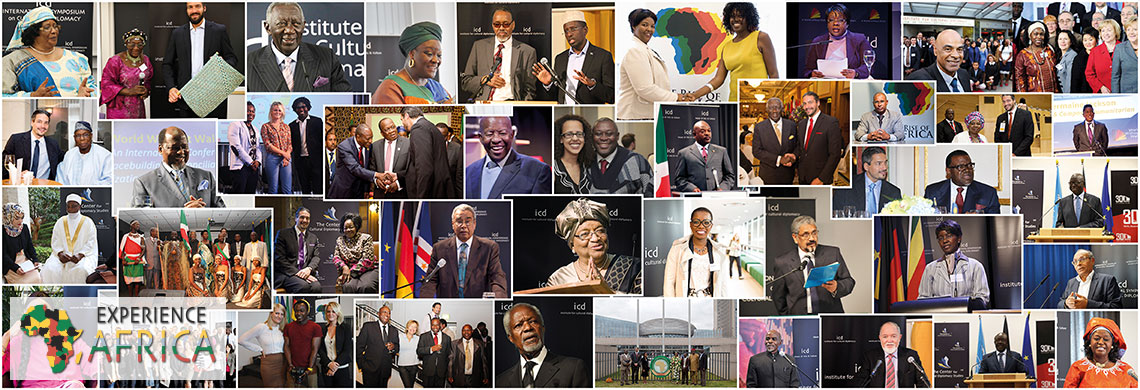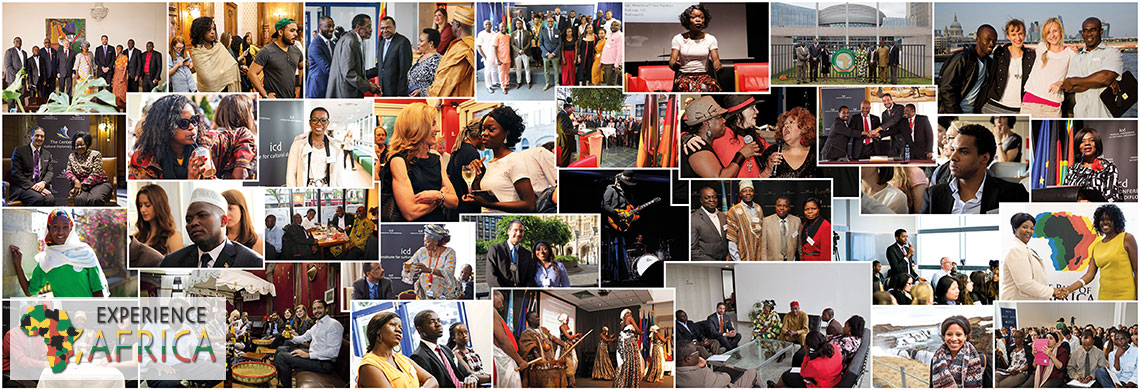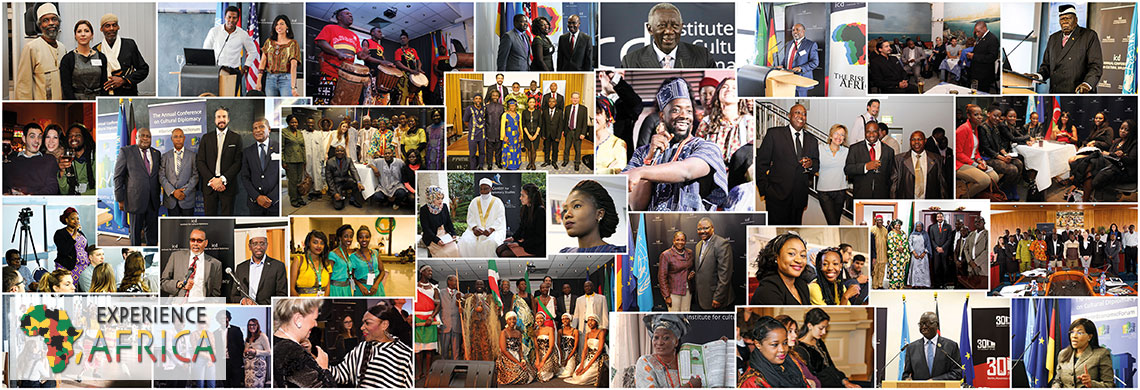The Power of Africa
"Africa as a Stronger Actor on the International Stage"
(Paris, May 2nd - 4th, 2012)

Thank You
The ICD would like to extend its sincere gratitude to all those in the organisation of the conference and to the entire Cultural Diplomacy in Africa & Mediterranean team including: Dragos Prodan, Pauline Soudier, Rudolf Sulik, Shizuka Arai, Ksenija Kovacic, Madalina Puiu and Julia Richter.Special thanks go to team leaders: Youssef Benbakka and Myriam Zekagh for all of their hard work, inspiration and dedication to the success of the conference.
Finally, the ICD and all of the organisers would like to thank the participants and speakers, whose enthusiasm and participation were a vital contribution to the phenomenal success of this exciting and vibrant international event that was thoroughly enjoyed by all involved.
Introduction
The Power of Africa is the third of a series of three conferences dedicated to Africa that were held in 2012. The first two stressed the importance of trade and culture in the rise of the African continent; this one focused on the possibilities and barriers that the African countries are facing in terms of economic and political bargaining power as well as the prospect of speaking with one voice on the international stage.The program consisted of lectures, seminars, debates and panel discussions featuring leading figures from international politics, diplomacy, academia, civil society, and professors. It provided everyone with an extraordinary opportunity for networking both in a formal and informal way, during the conference, but also during group dinners and breaks.
This series of conferences on Africa has been organised by the Cultural Diplomacy in Africa & the Mediterranean program, a program of the Institute for Cultural Diplomacy. CDAM aims at sharing the ICD’s philosophy that diplomacy must transcend mere discussion and include practical implementation of theory, for the reason that sometimes actions speak louder than words: cultural diplomacy must show rather than tell. For this conference, the ICD had the pleasure of benefiting from the support of our partner organisation IRCNL, and from the kind assistance of the French National Assembly, which opened its doors to welcome this event during the very last days of the French presidential campaign.
Conference Voices
Hon. Prof. Khalid Naciri
- “Morocco was already the most open democratic, institutionalized society. This is the reason why the political society did not implode, like it did in Tunisia, Libya or Egypt”
- “Democratization is a complex change, and refers to steps taken forward, and steps backwards. It is not linear, but dialectic. (...) democracy is a complex and unfinished process. In the case of the Arab spring, a changing regime does not equate democracy: in Egypt, for instance, there are too many open doors that are yet to close, in order to secure a democratic development.”
- “Moroccan monarchy has deep roots - it is the oldest regime in the world, set up in the 9th century - and benefits today from the added value that the king is very popular, thanks to his involvement in social issues. Monarchy stems from a very particular historical process (like it did in the UK or in Denmark), and it has a stabilizing role in the country. In this respect, we are in a specific democratic situation.”
H.E. Amb. Agron Buxhaku
- “Nationalism has been and continues to be the most important force in international relations today… but it is very different according to the country, it is a inherently historical phenomenon”
- “Regional cooperation is one of the keys to economic success for Africa”
- “Diaspora, with the knowledge and (possibly) the capital, will have more opportunities in Africa than in other countries abroad”
H.E. Amb. Teshome Toga
- “The strategic role of Africa on the international stage is fourfold: security, stability, democracy, unity.”
Eugen Brand
- “Ethics of development cannot rely on a one size fits all approach; it should be to learn and build from each country’s strength.”
- “There is much to do in the struggle against poverty, but we must offer freedom to each person, take the time to listen and understand. Misery or poverty will only end with the effort of each person.”
- “The drama of the poor is that they do not have a no history: they are in a historical black hole, nothing has been written down”
- “Misery kills more people in our world than wars”
- “The resilience of African youth should serve as an example for new development policies.”
Nathalie Goulet
- “Everyone wishes to engage in cooperation. Regarding France, economic cooperation is the most successful, much better than cultural cooperation, which does not necessarily have to focus on the promotion of French language.”
- “You have to be very precise about the money you can put on the table, and also about your aims.”
- “The new French minister of cooperation should rethink the relation with Africa.”
Nicolas de Riviere
- “Many African leaders play an important role within the UN. African is quite well represented in the United Nations.”
- “Over the last 10-20 years there has been an increase in the willingness of the African Union to act together. It is a very positive evolution, to see that African people take their responsibility in a local stage.”
- “Situation in Africa is not only negative; African people are changing their attitude about globalization from just receiving support in a rather passive way to becoming global actors, participating, cooperating, taking their own responsibilities as well.”



